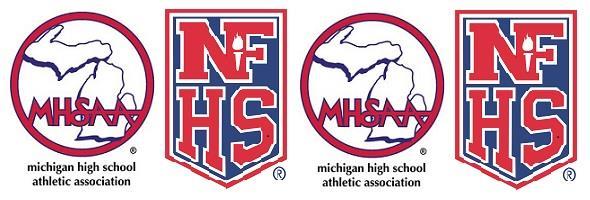
Perspective: What Matters Most
January 5, 2015
In this week's edition of MHSAA Perspective, John Johnson talks about what matters most, recognizing local athletes and their accomplishments, when it comes to media coverage of high school sports.
Now in its 10th season, the radio commentary MHSAA Perspective – presented by the Michigan Army National Guard – airs on over 80 radio stations and audio outlets across the state, generally during the local broadcasts of high school games. The program runs for 30 weeks through the end of the winter sports season.
This week's Perspective: What Matters Most - Listen
Past editions
Dec. 22 - Wasn't That a Great Game? - Listen
Dec. 15 - What Did You Do About It - Listen
Dec. 8 - Fans At The Fore - Listen
Dec. 1 - Life is Bigger than Football - Listen
Nov. 24 - Kudos - Listen
Nov. 17 - Something to Play For - Listen
Nov. 10 - Paper Playoff - Listen
Nov. 3 - Dumb & Really Dumb - Listen
Oct. 27 - The Middle - Listen
Oct. 20 - Football Playoff Primer - Listen
Oct. 13 - Value ... and Values - Listen
Oct. 6 - It's a Game - Not a War - Listen
Sept. 29 - Record Holders - Listen
Sept. 15 - Remembering 9/14 - Listen
Sept. 8 - Exposing Specialization - Listen
Sept. 1 - Enhancing The Fan Experience - Listen
Aug. 25 - Safety Trumps Everything - Listen

Become an Official: HS Sports Need You
January 24, 2018
By Bob Gardner, Executive Director of the National Federation of State High School Associations
and Mark Uyl, Assistant Director of the Michigan High School Athletic Association
They don’t make the headlines, their names are not in the box scores and they don’t make the all-star teams. But perhaps the most important individuals in high school sports are the contest officials.
These individuals are so important that, in fact, there would be no organized competitive sports at the high school level without the men and women who officiate these contests every day across the country. Subtract the dedicated men and women who officiate high school sports, and competitive sports would no longer be organized; they would be chaotic.
In some areas of our country, high school officials are retiring faster than new ones are being added. And junior varsity, freshmen and middle school games are being postponed – or even cancelled – because there are not enough men and women to officiate them.
Anyone looking for a unique way to contribute to the local community should consider becoming a registered high school official. For individuals who played sports in high school, officiating is a great way to stay close to the sport after their playing days have ended. Officiating helps people stay in shape, expands their social and professional networks and offers part-time work that is flexible, yet pays. In fact, officiating is a form of community service, but with compensation.
Another benefit of officiating is that individuals become role models so that teenagers in the community can learn the life lessons that high school sports teach. Students learn to respect their opponents and the rules of the game and the importance of practicing good sportsmanship thanks, in part, to those men and women who officiate. And the objectivity and integrity that high school officials display is an example that every young person needs to observe firsthand. In short, communities around the country will be stronger because of the life lessons that high school officials help teach the next generation.
Officiating is a great way to stay connected to sports and to give back to the local high school and community. We need dedicated men and women to become involved so that high school sports can continue to prosper for years to come.
Individuals interested in learning more about becoming a high school official, and even beginning the application process, can do so at www.HighSchoolOfficials.com.

